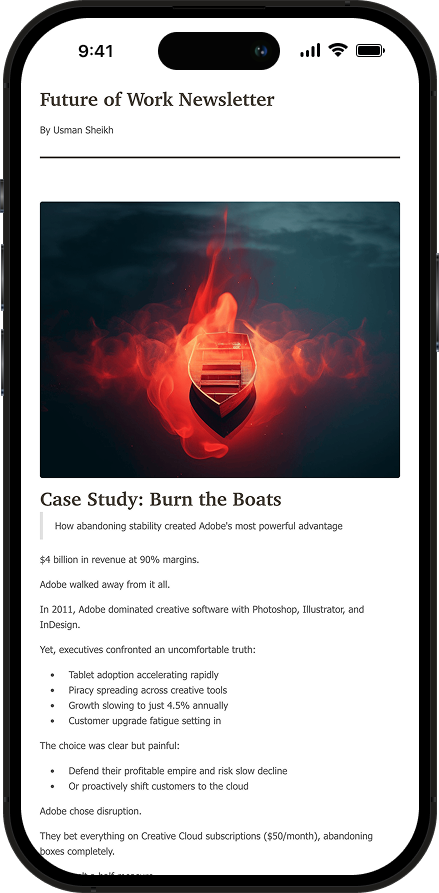26 Mar 2025
The End of Consulting’s Leadership Dominance
Part 1: Three Structural Shifts Redefining Consulting
Strategy consulting isn't just a service business.
It's something far more powerful:
A training ground for generations of corporate decision-makers and leaders.
The current model's pipeline:
→ MBB firms hired the top 1% of MBA graduates
→ Partners emerged through a "up-or-out" selection
→ Junior consultants gained accelerated experience
→ Alumni networks shaped global business leadership
The leadership impact:
→ 15%+ of F500 CEOs have consulting backgrounds
→ Alumni manage trillions in corporate assets
→ Ex-consultants dominate boards and startups
→ Created a common business language
This doesn't just disappear without consequences.
When AI eliminates the base of the pyramid:
→ Where will tomorrow's partners come from?
→ How will methodology transfer continue?
→ What new leadership training emerges?
→ Who maintains influential business networks?
New pathways are already emerging:
→ Expert networks rising in prominence
→ Growth in experienced hires vs. campus recruiting
→ McKinsey acquiring technical talent laterally
→ BCG's "expert track" hiring specialists instead of MBAs
→ Bain's "returnship" programs for former consultants
These strategies may preserve elements of the talent pipeline, but they can't prevent a more fundamental transformation.
Consulting hasn't just created business leaders; it has shaped business thinking itself, a monoculture maintained for generations.
For decades, one talent pipeline has defined what good leadership looks like. Its decline won't just change who leads; it will transform what leadership means.
As consulting's leadership monopoly fades, which industries or experiences will shape tomorrow's leaders?
Next week in this series: How AI is inverting the client-consultant power dynamic forever.
